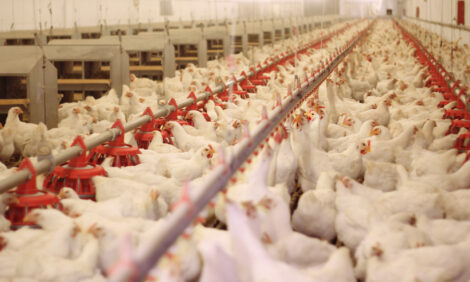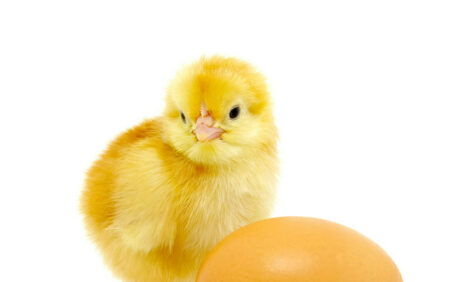



IPPE: IPWA studying outcome-based key welfare indicators
Describing the role of the International Poultry Welfare Alliance (IPWA)Part of Series:
< Previous Article in Series Next Article in Series >
The International Poultry Welfare Alliance (IPWA) is a multi-stakeholder group made up of individuals involved in poultry production and the poultry supply chain. Its members include growers, integrators, processors, foodservice companies, pharmaceutical companies, equipment manufacturers, nutrition providers, non-governmental organizations and associations from around the world.
IPWA Executive Director Ryan Bennett explained industry stakeholders from these groups came together to educate each other and build trust within the supply chain, which ideally will help the industry better communicate to its end customers. He shared progress on IPWA’s first project with The Poultry Site’s Sarah Mikesell during IPPE 2022 last January.
“As an organization, we’re all about improving that level of education and trust between supply chain partners and we’re doing that through an outcomes-based model of animal welfare,” said Bennett. “We’ve been working on our first major project which would be our outcomes-based key welfare indicators where we’re not focused on the practices or production type. To start, we’re really looking at if you want to measure animal welfare, what are the things you need to be measuring and what are the outcomes from what you’re doing that need to be measured and where did those occur along the lifecycle of the animal.
“Is it something that occurs at the hatchery, when that bird is being handled, or at the grow out phase of the bird’s life and really trying to narrow down the key things you need to be measuring, how you can measure those where different measurement systems exist and how you can implement that within your system.”
Bennett added that one goal of this project is to get IPWA members talking about what they do well, plus production practices that could be improved and focus on how to get better. In addition, operators can let the birds tell them how they’re interacting with their environment and what changes need to be made. Ideally, this will create a global discussion.
Verifiable data is key for program success and IPWA members heavily support verification processes.
“The way we’ve done it so far has been voluntarily and internally in those companies, and data can be certainly verified by third parties,” said Bennett. “You have to have the data to prove something. If somebody says the sky is blue and another person says it’s gray, the actual picture of the sky that day might be able to help you prove whether it’s blue or gray. Evidence-based decision making is really what we’re all about at IPWA.”
Providing practical animal welfare guidance is one of the benefits of these processes.
“When you think about animal welfare, and I know we talk a little bit about sustainability, as well. They’re confusing topics for people, the number of terms and issues out there are a big place,” said Bennett. “I think we really help to boil down those issues to their individual parts and help people work on welfare in a way that’s comfortable for them and allows them to help themselves navigate. We don’t tell people which way to go or what they should or shouldn’t be doing. But we give them the tools available to make better decisions and be more comfortable with the decisions they’re making, whether they be on welfare or sustainability. I think we can help people navigate these uncertain times with emerging science with different pressures from different group and people saying different things and really getting to experts and getting back to the basics of what we know. We hope to be people’s guideposts and hope our members can be resources for one another as they navigate these waters.”
Bennet emphasized there are no single “right” answers on animal welfare or, even poultry welfare, which can mean different things in different parts of the world.
“We do a lot of webinars on hot topics, such as lighting or depopulation. We just did one on global perspectives of animal welfare and what’s going on in North America compared to Asia, compared to South America and it is very different,” he said. “There is still a lot of commonality. There are still different stages where people are and learning from what went well and what didn’t go well as people evolve. And, as regions evolve, I think we’ll help a lot of people going forward and be able to capture of the things that went well and avoid some of the things that didn’t go well.”
As regions progress, consumer perception about production and animal welfare will evolve, as well. It is important to prepare for these changes as perceptions are never static.
“We see perceptions about welfare change as countries modernize. So, the production systems are modernizing in some economies and those consumers are modernizing in a way. Just because we have a read on a region, characterizing how those consumers feel about welfare today doesn’t mean that won’t change in 20 years,” said Bennett. “People really need to be thinking about it just because you’re not getting asked these kinds of questions or receiving the types of pressure you might get in North America or Europe doesn’t mean that it won’t be there. It likely will be there in a short period of time. So, preparing for it now and growing in a way that allows you to better tell your story when that time comes, makes a lot of sense from our point of view and our members’ point of view. We hope we’re providing the mechanism for people to be able to share those learnings and hopefully be able to grow in a way that is good for welfare and good for their business.”










